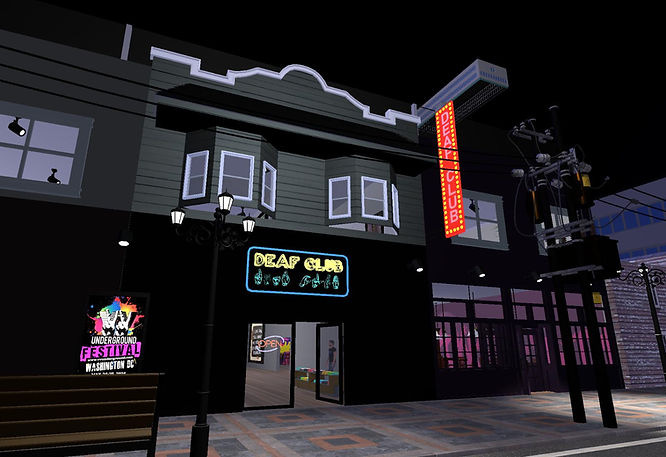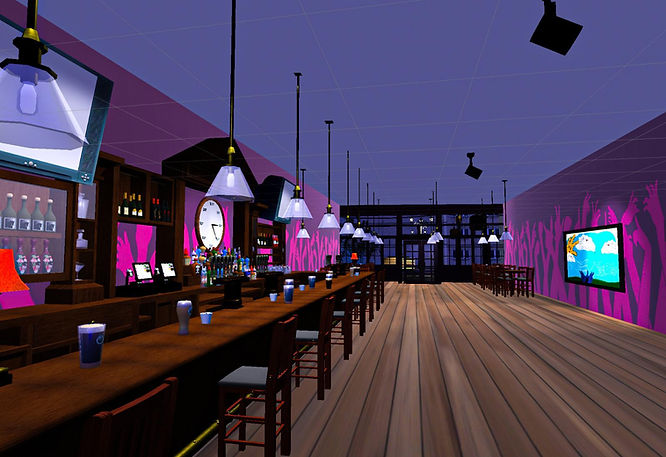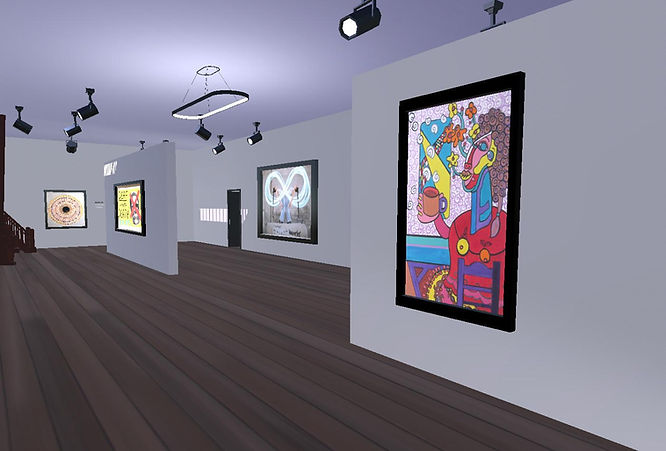VIVE Arts and VIVERSE Partner with Leading Art & Tech Organizations to Support Metaverse Innovation
CripTech Metaverse Lab Engages Disabled Creators to Prototype the Future of Immersive Technologies
VIVE Arts, a global arts and technology initiative that supports artists and cultural institutions to experiment with immersive and blockchain technologies, and VIVERSE, HTC’s open and user-centric metaverse platform, are partnering with leading organizations in arts and tech to support innovations in immersive technology and the metaverse. Gray Area, San Francisco’s cultural incubator, and Leonardo, a nonprofit enterprising think tank at the nexus of art, science, and technology, are premiering immersive artworks by disabled creators, aimed at increasing accessibility in the metaverse.
VIVE Arts and VIVERSE are collaborating on the commissioning of works by creators Indira Allegra and Melissa Malzkuhn. Gray Area and Leonardo are also collaborating with production partner New Art City on a third commission by Nat Decker. The three artists were selected from the inaugural CripTech Metaverse Lab, and each received development stipends of $20,000 as well as additional technical and production support from VIVE Arts, VIVERSE, and New Art City. The commissions will be unveiled at Gray Area Festival: Plural Prototypes, which takes place from October 19-22nd, 2023. Tickets to the 2023 Gray Area Festival are available at grayareafestival.io.
The collaboration builds on VIVE Arts’ wide-ranging program of commissions and institutional collaborations that brings boundary-pushing artists and creators together with cutting-edge, immersive technologies—harnessing the power of artists to drive innovation in the way culture is shared and experienced. VIVE Arts’ recent projects include Wu Tsang’s Of Whales (2022), and La Palette de Van Gogh at the Musée D’Orsay, an opportunity to experience the last paint palette used by Vincent van Gogh through interactive and immersive virtual reality on view as part of the museum’s Van Gogh in Auvers-sur-Oise exhibition (on view October 3, 2023, through February 4, 2024). Previous partners have included the Venice Biennale, Serpentine Galleries, the Triennale Milano, the Tate Modern, the Victoria and Albert Museum, and the Musée du Louvre, among many others.
“Gray Area and Leonardo’s pioneering work through the CripTech Metaverse Lab is deeply aligned with our commitment at VIVE Arts to advancing exploration and innovation at the intersection of art and technology,” said Celina Yeh, Executive Director of VIVE Arts. “We are proud to support these important commissions and to empower these creators with HTC technology to prototype the future of immersive experiences and the metaverse.”
“We at VIVERSE are passionate about creating spaces that are not only immersive but also inclusive,” said Joseph Lin, General Manager at VIVERSE. “Collaborating with such visionary organizations and artists underscores our commitment to a metaverse where everyone has a voice and where innovation is driven by diverse experiences. The unique perspectives of disabled creators will not only enrich the VIVERSE ecosystem but also pave the way for a more accessible and representative digital future for all.”
CripTech Metaverse Lab Commissions
Historically, disabled users and creators have been left out of design considerations for emerging technologies. By envisioning new creative pathways for people with disabilities to engage within immersive spaces, the selected projects enrich metaverse social and sensory experience for all. Two of the works will be developed on HTC’s VIVERSE, an immersive platform that empowers people to design their own virtual spaces. Malzkuhn’s project, The Deaf Club, reimagines the concept of deaf clubs, a vital part of Deaf culture and storytelling globally, within the digital realm.



A living weaving that sings, Allegra’s TEXERE: A Tapestry Is A Forest is among the first immersive VR platforms for the collective memorialization of loss.

Decker’s TOUCH, produced in collaboration with virtual art space New Art City, will be an interactive poem exploring narratives of the boundaries of physical intimacy and infraction from the perspective of a queer disabled person.
Lab member Melissa Malzkuhn says: “The concept of a metaverse is so new that there is no universal definition of it yet; this is what makes it exciting—I believe that if we want to build a great metaverse experience, we must start with the marginalized. This is how we can truly learn something new. This is going way beyond VR enabled avatars sitting in a meeting room. It is about world building and shifting the narrative.”
In February 2023, the CripTech Metaverse Lab convened to address accessibility challenges in virtual reality (VR), augmented reality (AR), and spatial audio by enabling disabled creators to actively shape the future of immersive technologies. This pioneering collaboration brought together ten disabled creatives—Panteha Abareshi, Indira Allegra, Nat Decker, Antoine Hunter, Melissa Malzkuhn, Maia Scott, Stephanie Sherriff, Andy Slater, Jennifer White-Johnson, and Iris Xie—to experience immersive artworks, engage in critical discussions, and create new speculative artworks. The Lab featured virtual and in-person events, facilitated by disabled usability researchers Jennifer Justice and Frank Mondelli, access doula Claudia Alick, teams from Leonardo/ISAST and Gray Area, and industry partners VIVE Arts, VIVERSE, and Meyer Sound. Results of the convenings will be shared through a white paper published in the Leonardo journal, an online research archive, and through programs at the 2023 Gray Area Festival.
Leonardo’s Disability and Access Lead, Lindsey D. Felt, says, “CripTech Metaverse Lab is an experiment in collective creative access. It is thrilling to witness and be in community with creators whose engagements as non-compliant users show us the importance of including everyone in virtual worlds. At this inflection point, we need to hold space for disability knowledge and artistry.”
The CripTech Metaverse Lab is part of Gray Area’s 15th anniversary focus on Access, which spans across events, education, and research programs. Rafael Lozano-Hemmer’s survey of technological culture in Mexico, TECHS-MECHS, challenged prescribed notions of Latinx identity by complicating relationships between technologies, bodies, and borders. The exhibition Difference Machines explores how technology is a lens that structures our identity. The CripTech Metaverse Lab and C/Change Labs are prototyping how emerging technologies, when imbued with intentional design, can open up new pathways for connection and inclusion. Finally, the 2023 Gray Area Festival: Plural Prototypes will consider how we can build plurality into cultural infrastructure that will enable the future of creativity. All of these programs ask urgent questions about organization and governance,
digital democracy, data sovereignty, the technical inaccessibility of creative tools, the role of the artist, the future of work, and planetary futures.
“At Gray Area we believe artists have a vital role to play in shaping an equitable and regenerative future for society,” said Barry Threw, Gray Area’s Executive and Artistic Director. “Our Access program centers artistic inquiry as a means to help us better understand our present, and envision a more inclusive future; and the CripTech Metaverse Lab demonstrates the power of this approach.”